Have you been told that your brain fog, slow metabolism, lack of energy, forgetting things, low moods, weight gain, hot flashes etc., are just a result of you getting older? Have you been told that you need to accept these symptoms as a new reality and there is nothing to do about them?
Or even worse, it is perfectly normal to feel a certain way just because you are going through perimenopause or menopause? This is so frustrating, demoralising and luckily not true! Although commonly, many of us will experience some new symptoms in our 40s, these must not be considered our “new normal”, and indeed we have the option to do something to help our body to find a new balance to feel and look great at any age!
Our body wants to function at peak capacity, and our natural state is health. Therefore our body always tries to get back into homeostasis. Our symptoms are just the signs that we are not in homeostasis.
And the same goes with our hormonal symptoms … yes… there are normal and natural changes to our hormone status, but it is also true that there is a lot we can do to counteract those normal hormonal shifts and decline… starting with our daily food choices.
Food punctuates our life, we eat every day, and the great news is that food is medicine … it impacts our energy, moods, focus, thoughts, and the way we look. And as such, with every single meal, we have the power to shift more toward health and further away from imbalance and disease.
Food supports hormone balance and liver health; of course, the opposite is also true …depending on the food we choose.
Hormones are chemical messengers that instruct the cells of the body on how to behave …they are the conductor of our health !!! Chronic stress, poor diet and toxicity (from our modern environment) put our endocrine system under attack every day, resulting in hormonal imbalances which lead to low energy, low moods, lack of motivation, lack of focus and inability to lose weight no matter what we do.
Top ten food choices which support our hormonal balance
Starting to pay attention to our food choices from a hormonal perspective can be very powerful…forget about focusing on calories but let’s start focusing on the quality and functions of our food.

1. Start the day right: supporting our liver is critical for hormonal health. A simple strategy we can adopt in the morning is to start the day with a little shot of lemon juice – 2-4 tbsp and 1 tbsp apple cider vinegar diluted in a little glass of water.
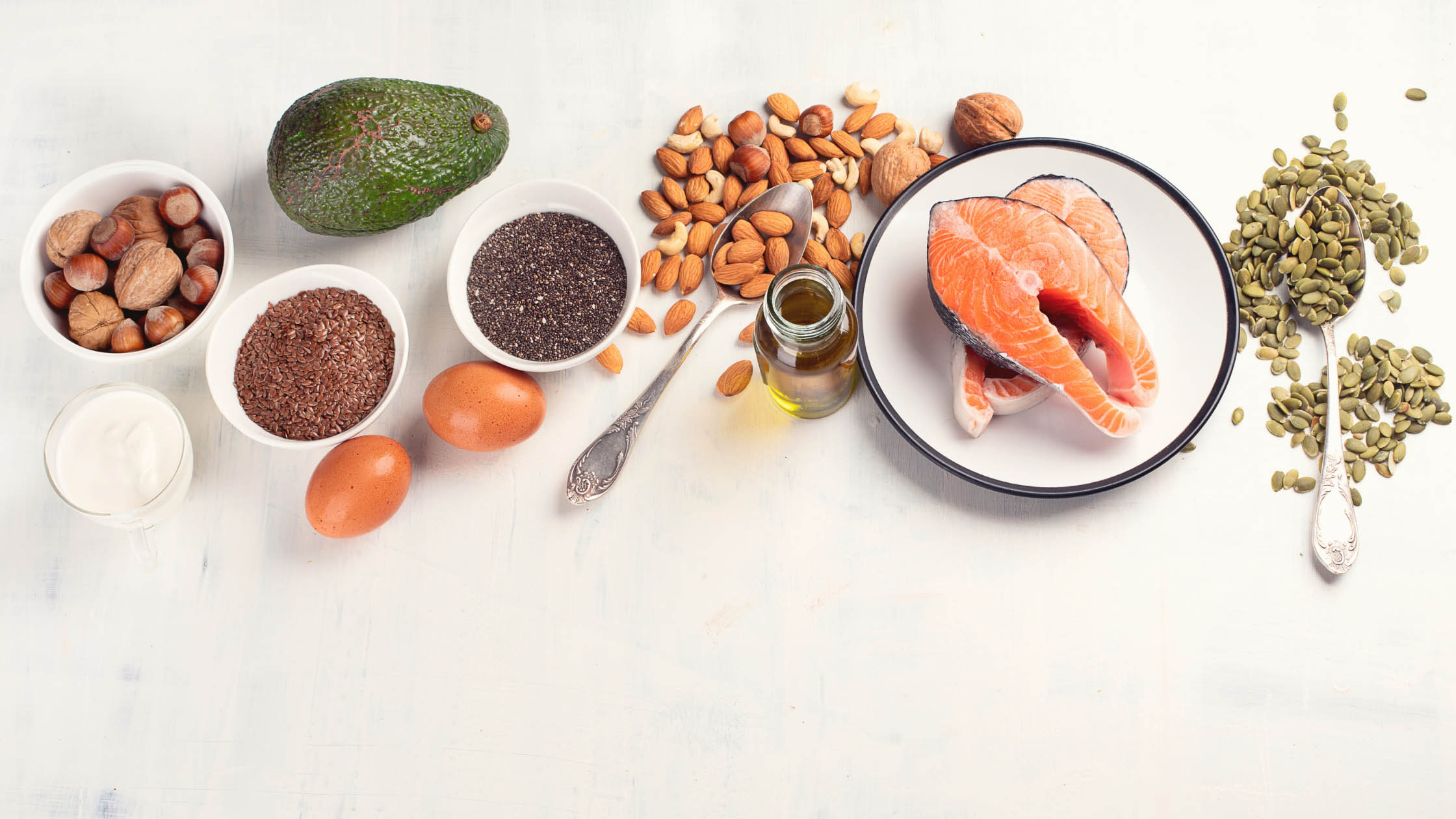
2. Become friends with fat! You need to have some healthy fat daily in your diet! Extra virgin olive oil + avocado + coconut + walnuts + almonds + seeds … fat is necessary for your hormonal production and for the health of your cells ( the cell membrane is made of fats ), your brain is made for the majority of fat.
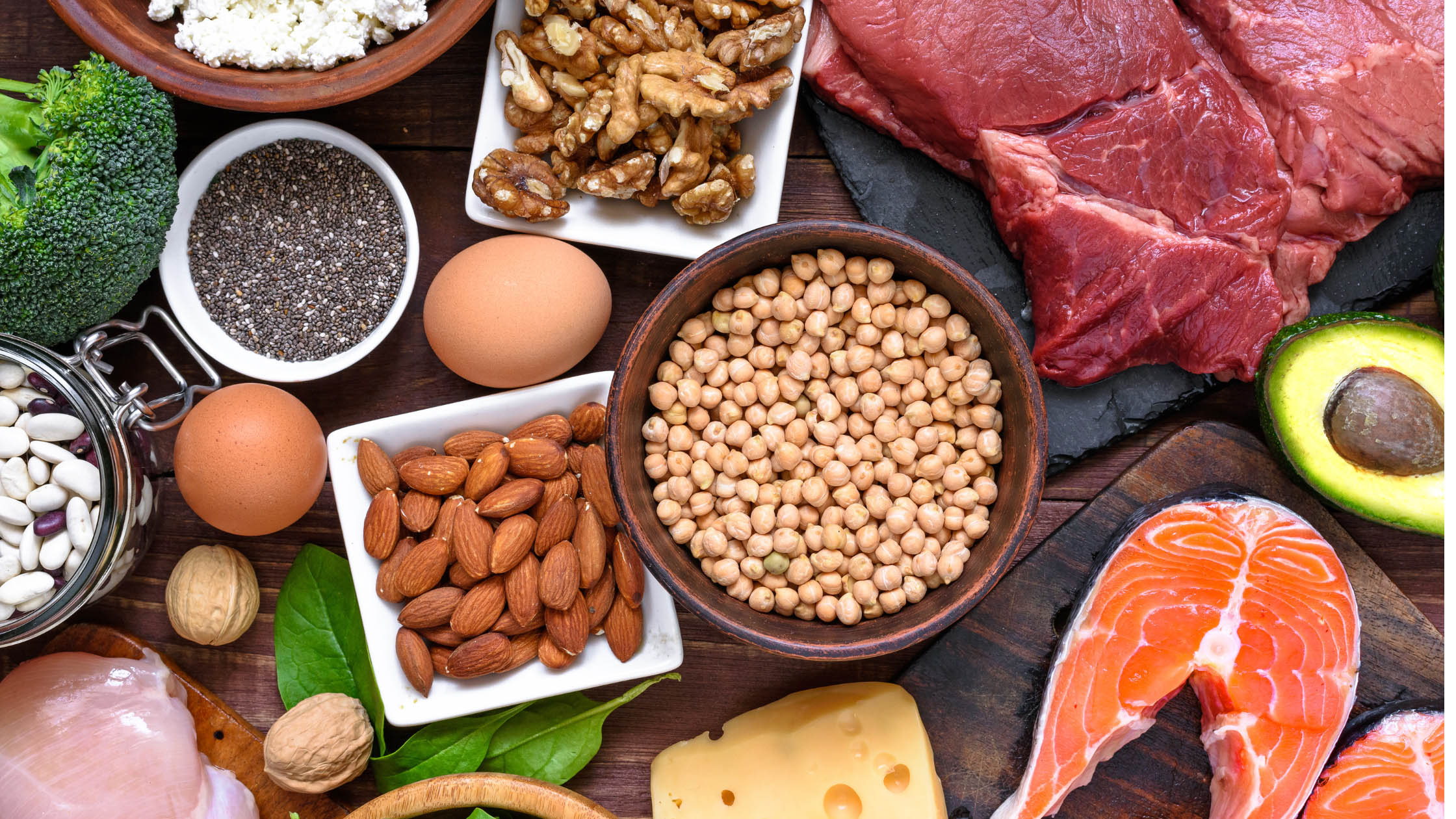
3. Proteins are your besties: they must be in every single meal of the day …even in your snacks …the amount varies according to your body composition but for now, focus on having them with every single meal of the day. They are the building blocks for building, and repairing our cells, our neurotransmitters and our hormones and are necessary for good body composition (muscle mass).
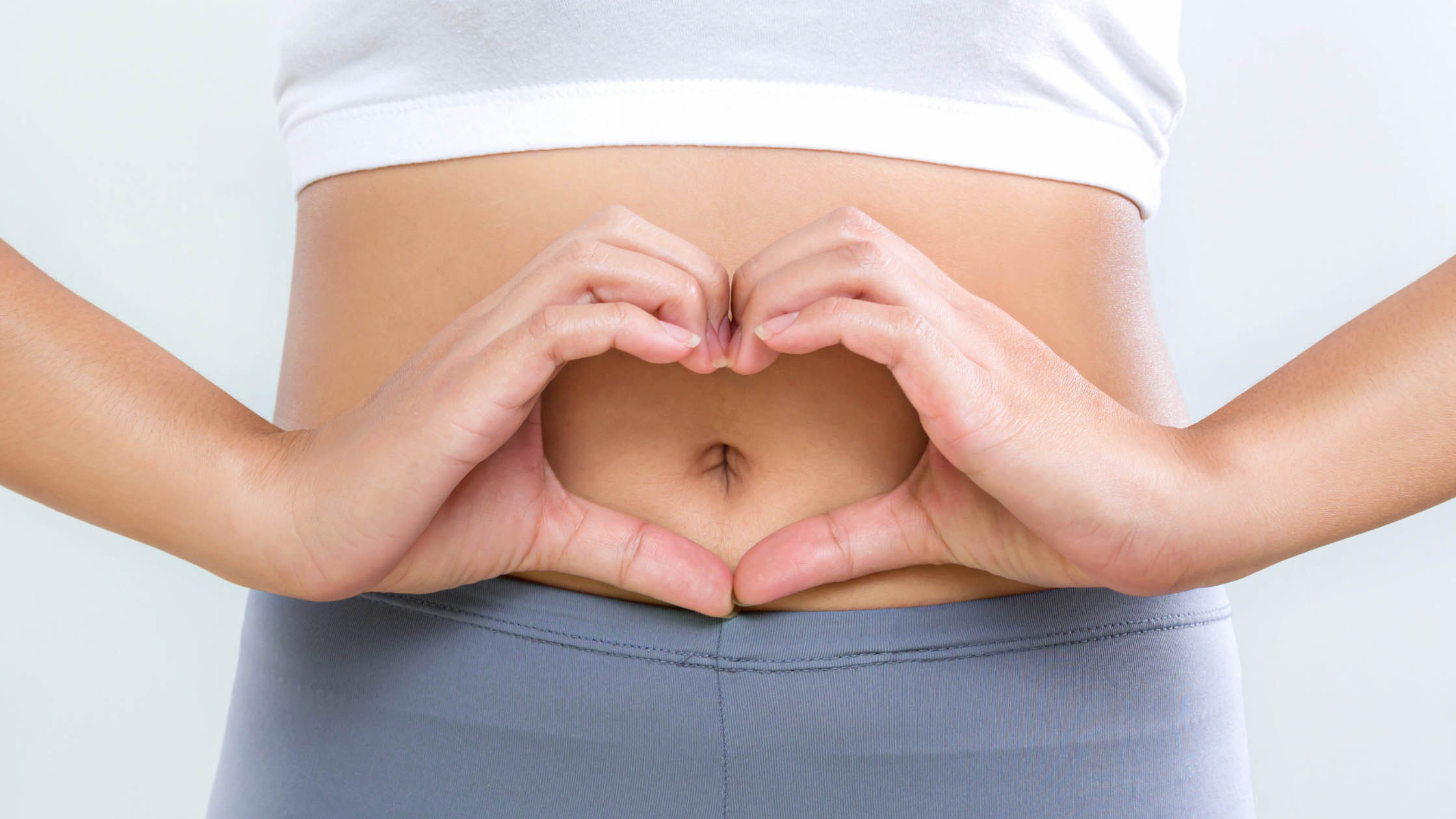
4. Consider taking a digestive enzyme with your meals to help you break down your food and make it easier for you to absorb the nutrients. This is particularly important if you are very stressed, if you increase the amounts of fats and proteins and if you suffer from indigestion and bloating. NB: if you have a diagnosis of an ulcer, digestive enzymes are not suitable for you.
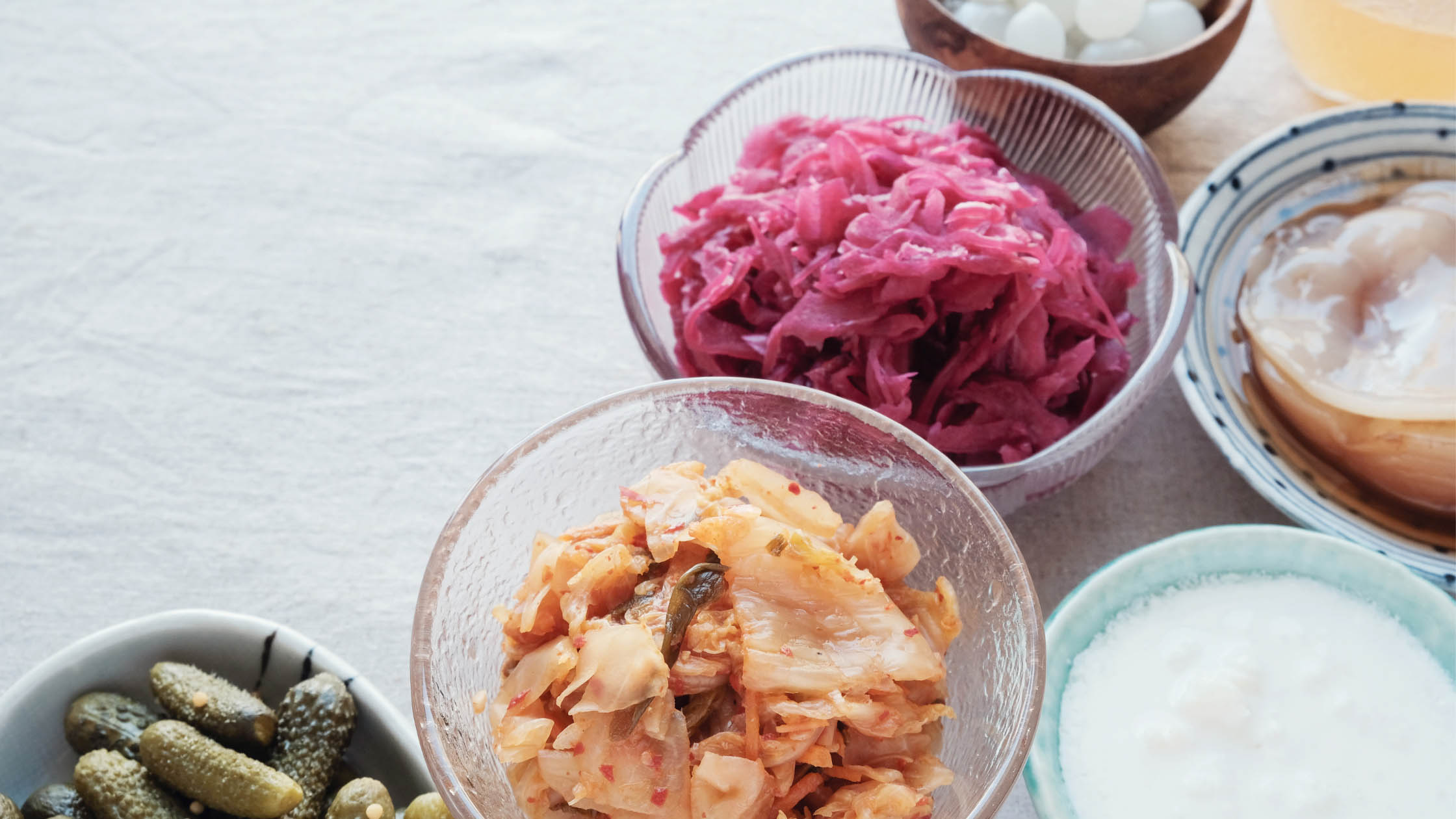
5. Probiotic foods vs supplements. Probiotics foods contain healthy bacteria – think about fermented foods such as yoghurt, sauerkraut, miso, tempeh, and kefir … start adding a couple of small servings each day – start with tiny amounts and build up. Too much too soon can cause a lot of gas and bloating. A healthy gut populated with a variety of bacteria is essential for hormonal balance.
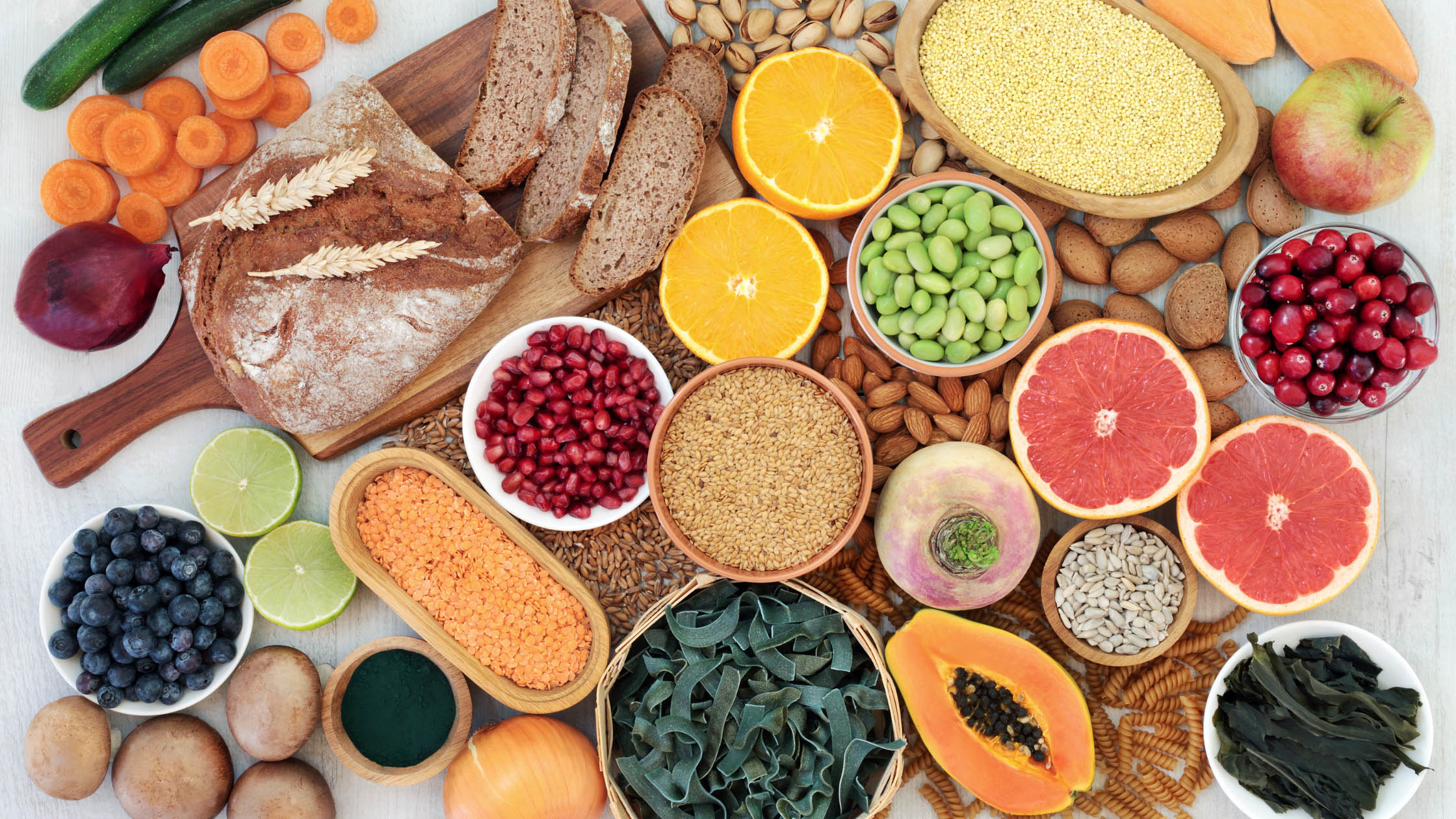
6. Focus on fibre. It supports gut motility (going to the loo regularly is a must) and your microbiome (the microorganism in your gut) health and diversity. Fibre also helps with feeling full and weight management because it positively affects the two hormones strictly related to weight management: leptin and insulin … think about whole grains, legumes, beans, and peas…
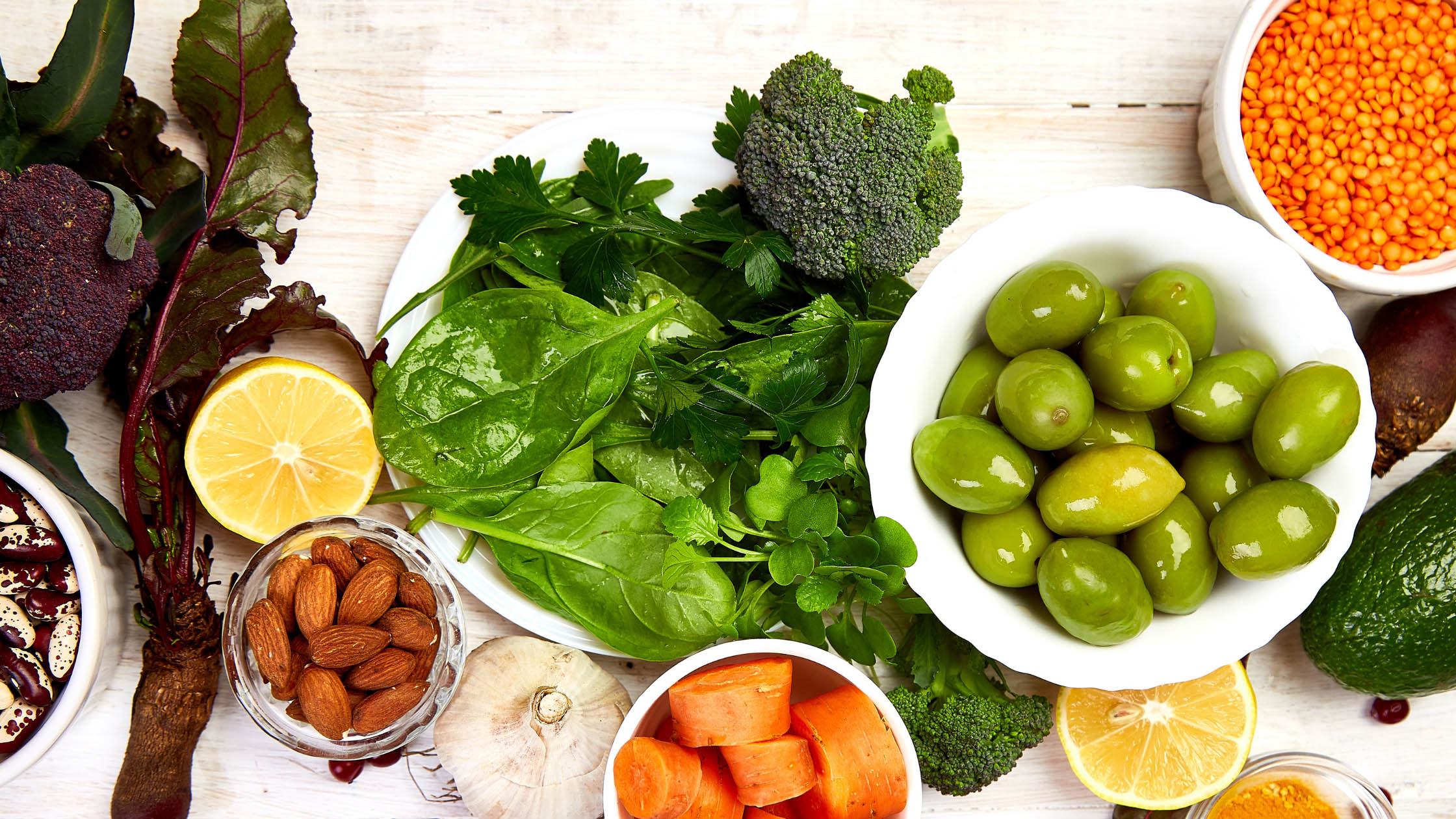
7. Love your liver: a healthy liver is synonymous with a healthy metabolism and hormone balance …when your liver is sluggish, every single system in your body suffers … to support your liver, consider a green smoothie at breakfast or as an afternoon snack ( not a green juice ) parsley, dandelion, coriander, spinach, lemon juice …I am candid with you …not the best tasting smoothie but definitely very effective – on my FB GROUP I have published the exact recipe I use – if you haven’t yet, join by clicking HERE.

8. Protect your thyroid: every single cell of your body has receptors for the thyroid hormones. Thyroid health is often under threat during the years of perimenopause and menopause. You can find more detailed information on how to support it HERE.

9. Start mapping your cycle and understand that the composition of your meals needs to be different on the week preceding your period …during this week, there is a higher caloric requirement which often manifests through more cravings for carbs…if you are aware of when this happens, you can plan ahead and be prepared with the suitable types of carbs so that you don’t raid your kids’ sweety stash or are compelled to drive to the nearest petrol station to get the bag of Maltesers!

10. Don’t skip meals! It’s a recipe for disaster! Fasting is excellent when appropriately planned, but random skipping of meals leads to cravings, blood sugar imbalances, and poor dietary choices. If you think skipping meals is good for you because you avoid some calories, think again!
If you want more practical advice and support, join my free FB community by clicking HERE.
Wishing you the best of health and vitality
Monica x


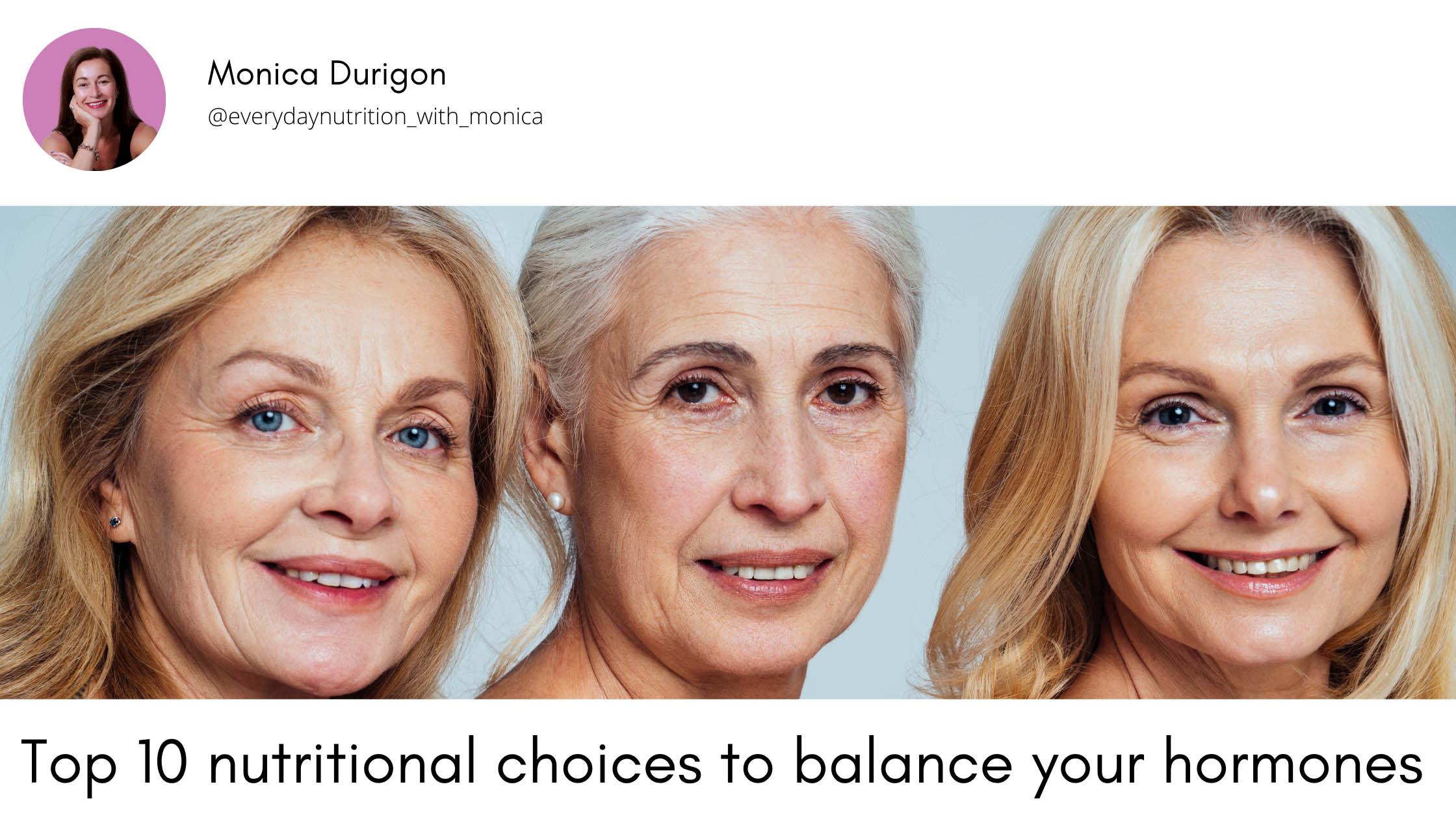


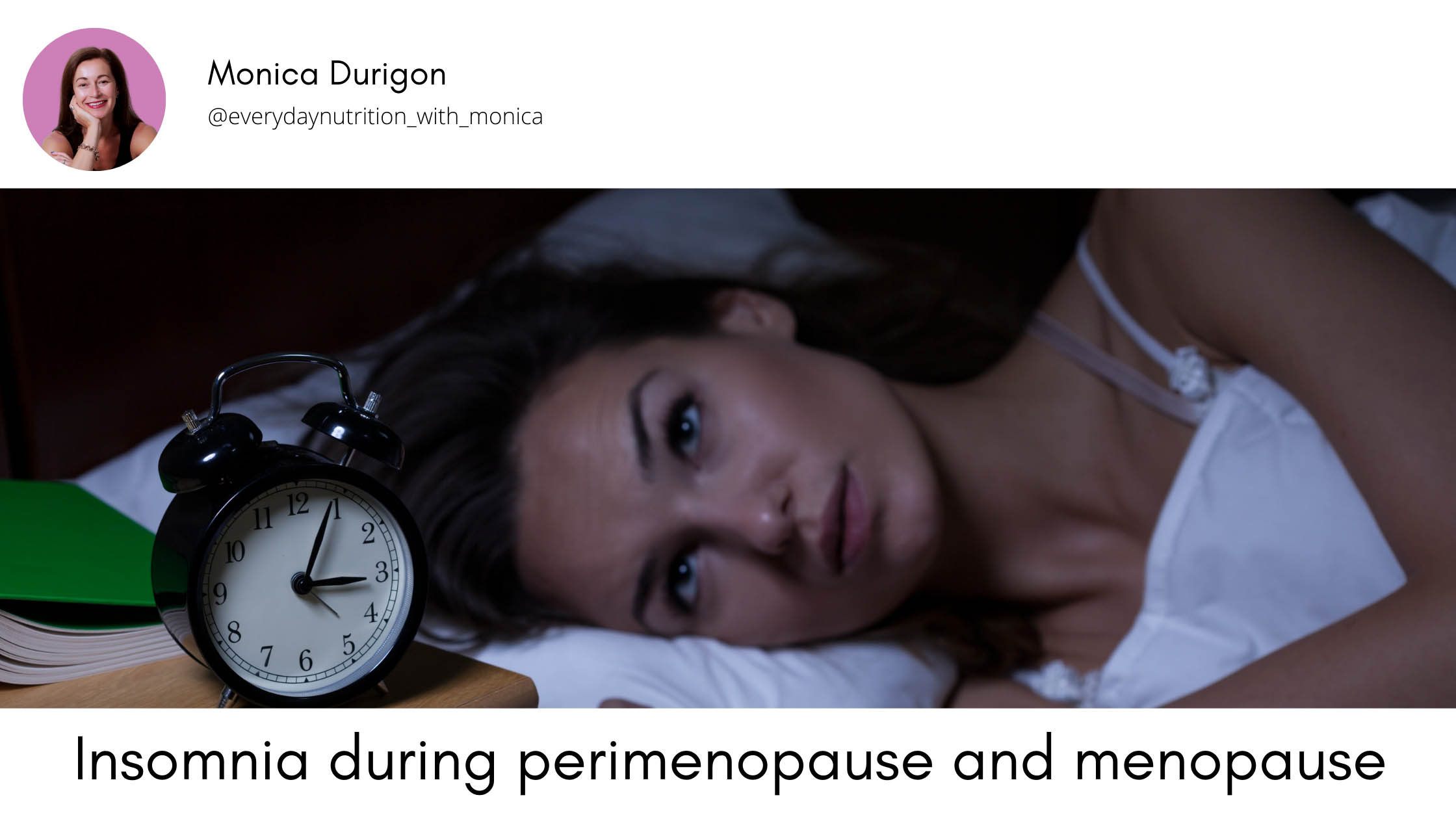

0 Comments